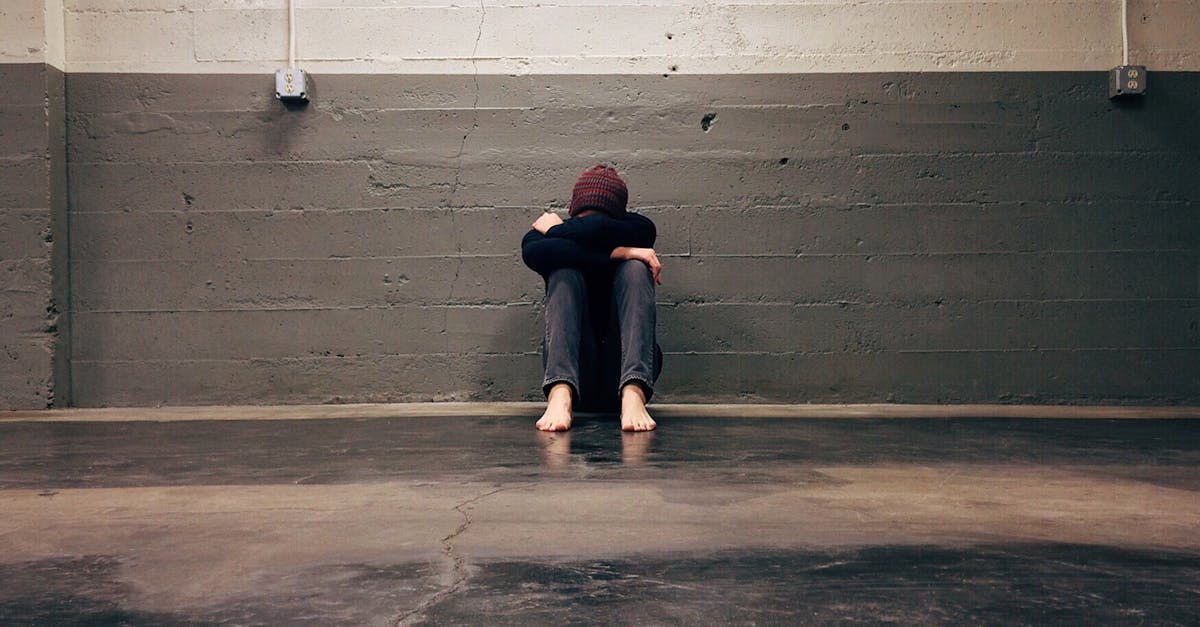In our fast-paced world, it is easy to overlook the silent struggles many face daily. One such challenge is severe anxiety, a condition that can deeply affect a person’s quality of life. Understanding the symptoms of severe anxiety is crucial, as they often manifest in various emotional and physical ways. By recognizing these signs, we not only empower ourselves but also support those around us who may be grappling with this condition. The journey toward awareness and treatment can lead to significant improvements in well-being.
Main Points
This article will explore the various symptoms of severe anxiety, emphasizing both emotional and physical aspects. We will discuss how to identify the common symptoms of severe anxiety, including panic attacks and their related effects. Additionally, we will highlight the importance of recognizing these signs early to facilitate timely treatment for symptoms of severe anxiety. By fostering a deeper understanding, we aim to alleviate the stigma surrounding anxiety and encourage open conversations about mental health.

Understanding the Distinction: Anxiety vs. Severe Anxiety
In navigating the complex landscape of mental health, understanding anxiety and its more intense counterpart, severe anxiety, is crucial. While both share common ground, the intensity and impact significantly differ. Symptoms of severe anxiety disorder can manifest in overwhelming ways, often disrupting daily life. Recognizing these nuances can help guide individuals toward effective coping strategies. Key differences include:
- Common symptoms of severe anxiety: These may include persistent worry, restlessness, and difficulty concentrating.
- Physical symptoms of severe anxiety: Individuals may experience rapid heartbeat, sweating, or trembling.
- Functional impairment: Severe anxiety often limits one’s ability to engage socially or perform at work.
Grasping the distinction between general anxiety and its severe form is essential for seeking appropriate support.
Common Physical Manifestations of Severe Anxiety
Severe anxiety can often reveal itself through undeniable physical symptoms. Many individuals experience rapid heartbeats, which can feel both alarming and disorienting. Others may notice excessive sweating or trembling, making daily activities challenging. Muscle tension is another common issue, as the body remains in a constant state of readiness. Understanding these physical symptoms is essential for effectively addressing the symptoms of severe anxiety. Recognizing these manifestations can lead to a deeper awareness of one’s emotional state, ultimately fostering better coping strategies.
Cognitive Symptoms: How Severe Anxiety Alters Thought Patterns
Severe anxiety significantly distorts thought processes, leading to intrusive thoughts and pervasive confusion. Individuals often find themselves trapped in a cycle of symptoms of severe anxiety, affecting both reasoning and clarity. This cognitive disarray can generate a sense of helplessness, where decision-making becomes overwhelming. Furthermore, the brain’s neurochemical responses may exacerbate these alterations, creating a feedback loop. Understanding this connection highlights the necessity of effective treatment for symptoms of severe anxiety, allowing individuals to reclaim their mental clarity and stability.
Emotional Turmoil: Identifying the Psychological Impact of Severe Anxiety
Severe anxiety can create significant emotional turmoil, often manifesting in various symptoms of severe anxiety. Individuals may experience overwhelming feelings of dread, difficulty concentrating, and physical sensations like a racing heart. These effects don’t merely vanish; they linger, affecting daily life. It is crucial to recognize these signs early to mitigate their impact. Engaging in open dialogue about one’s experiences can foster understanding and resilience. Consider the following:
- Physical Symptoms: Includes headaches or stomach issues that arise without clear medical causes.
- Emotional Distress: Feelings of hopelessness or constant worry that disrupt one’s peace.
- Cognitive Impairment: Challenges in memory retention or focus, often resulting in frustration.
Identifying symptoms of severe anxiety is essential for seeking appropriate support. Recognizing and addressing these issues can lead to improved well-being.
The Role of Environmental Triggers in Severe Anxiety Episodes
Environmental factors significantly contribute to the onset of symptoms of severe anxiety. Unexpected loud noises or crowded places can evoke intense responses, heightening feelings of dread. For many individuals, these moments lead to overwhelming panic. Specifically, changes in one’s surroundings, such as drastic weather shifts or unfamiliar locations, can serve as powerful triggers. Understanding how these environmental stimuli affect us is crucial in managing and ultimately alleviating symptoms of severe anxiety. Strategies to cope can effectively transform these experiences.
Practical Strategies for Recognizing and Addressing Severe Anxiety Symptoms
Severe anxiety is often marked by overwhelming feelings of dread and panic. To effectively manage this condition, individuals should first learn to recognize its symptoms of severe anxiety. Common signs include restlessness, rapid heartbeat, and difficulty concentrating. Once identified, practical strategies can be employed. Techniques such as mindfulness and deep-breathing exercises can reduce symptoms. It’s essential to seek professional guidance when needed, as tailored approaches make a significant difference in treatment.
“The greatest weapon against stress is our ability to choose one thought over another.” – William James
Key Strategies to Consider
| Strategy | Description |
|---|---|
| Mindfulness | Focus on the present moment to alleviate anxiety. |
| Deep Breathing | Calm the body and mind through controlled breathing techniques. |
| Professional Support | Consult a therapist for personalized strategies. |
By understanding the symptoms of severe anxiety and implementing these features, individuals may find relief and take charge of their mental health. Remember, it’s about progress, not perfection.
Conclusion
Recognizing the symptoms of severe anxiety is just the first step toward understanding and addressing this often-overwhelming experience. Many people suffer in silence, unaware that their feelings and physical sensations are not unique to them. Acknowledging these symptoms can be both a relief and an essential part of the healing process. It allows individuals to seek help and connect with others who share similar struggles. Therefore, openness and communication should not be underestimated. When we shine a light on anxiety, we can build a supportive community and dismantle the stigma surrounding mental health. In conclusion, by recognizing the symptoms of severe anxiety, we empower ourselves and others to find the right paths toward healing and support.
Frequently Asked Questions
What are the common symptoms of severe anxiety?
Common symptoms include persistent worry, restlessness, fatigue, difficulty concentrating, irritability, muscle tension, and sleep disturbances.
How can I tell if my anxiety is severe?
If your anxiety significantly interferes with daily activities, relationships, and overall quality of life, it may be considered severe. It’s best to consult a mental health professional for an accurate assessment.
What treatments are available for severe anxiety?
Treatments often include therapy (such as cognitive-behavioral therapy), medication (like antidepressants or anti-anxiety drugs), and lifestyle changes, including exercise and mindfulness practices.
Can severe anxiety lead to other health issues?
Yes, severe anxiety can contribute to a range of health issues, including depression, substance abuse, and physical health problems like heart disease due to chronic stress.
What can I do to manage my severe anxiety at home?
Management techniques include practicing relaxation exercises, engaging in regular physical activity, maintaining a balanced diet, ensuring adequate sleep, and seeking support from friends and family.



